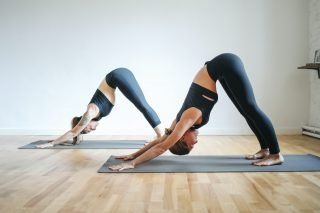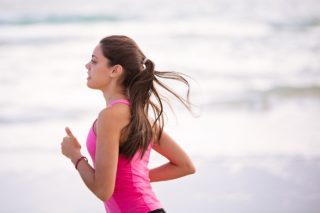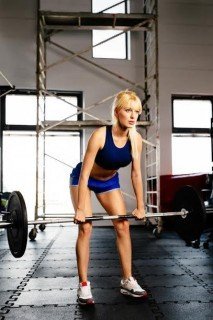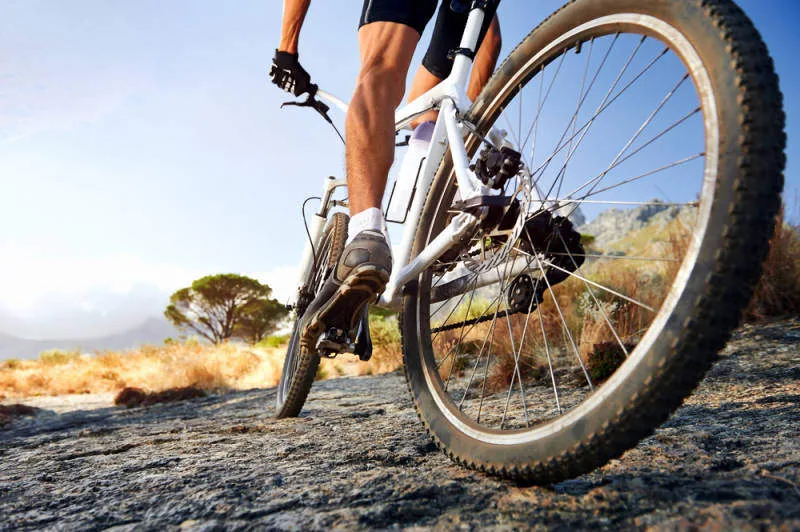We all know that exercise is good for us, good for our health in general and can help with all manner of illnesses and ailments. It has even been shown to help reduce stress and symptoms of anxiety. But, could exercise also be the answer to preventing severe symptoms and hospitalization when it comes to Covid-19? A new study seems to suggest just that, so could preventing excess hospitalizations then be as simple as getting us all moving more and leading less sedentary lifestyles?
The new study: COVID and Exercise
This new study is fairly recent and consists of 50000 people, specifically Californians, who developed Covid-19. The study found that those in the

Photo by Polina Tankilevitch from Pexels
study who were most active before falling ill were the least likely to be hospitalized and/or die and were also much more likely to recover quickly. It is important to note that this study was done prior to the vaccines becoming available. Thus, this study doesn’t suggest that exercise could be used as an alternative to the Covid-19 vaccine. Instead, it could be used in tandem with it in order to prevent serious illness in the case that you do develop it.
Generally, because Covid-19 and all its variants are so new, there is relatively little known about it. This is unfortunate but has also prompted many studies which all seem to show similar data when it comes to Covid-19 and exercise. It seems that although obesity has a seemingly negative impact on Covid-19 and how sick it makes you. If you have good aerobic fitness, even if you are obese, you are at a much lower risk of developing severe Covid-19.
The good news is that you don’t need to be elite athlete fit, you just need to add regular exercise to your routine. In other words, all you need to do is get moving. According to the New York Times, this can include anything from swimming or riding a bike to walking daily (this could be great if you have a dog as you can simultaneously get some exercise and bonding time).
Will exercising help with more than just Covid-19?
With any luck, COVID is on its way out of our lives – hopefully forever. Thanks, vaccines! So, is it really that important for us to start exercising now? When most countries are well into their vaccine programs – do I really need to start walking my dog daily? Well, the answer is a definite yes! Getting regular

Photo by cottonbro from Pexels
exercise can help with far more than just preventing you from becoming seriously ill due to COVID.
Scientists and doctors have long been very fond of exercise as a preventative method when it comes to getting sick. There is a lot of evidence to suggest that “aerobically fit people are less likely to catch colds and other viral infections”. Not only that but they also tend to recover much more quickly than unfit and/or overweight people. This seems to be mostly down to the fact that exercise can boost the immune response. A better level of fitness also “heightens antibody responses to vaccines” against illnesses like the common flu.
So how do I know if I’m aerobically fit?
The most important thing to note here is that you might be aerobically fit even if you feel like you aren’t. Obviously, this isn’t true of all of us but there are a few ways to check whether you are aerobically fit according to Insider:
You have a low heart rate
Ideally, your normal heart rate should be between 60-100 beats per minute (bpm). If you have any type of smartwatch, this is relatively easy to monitor. Any higher than 100 bpm could indicate heart disease or high blood pressure.
You are able to walk at a fast pace
 If you are able to walk or jog at a moderate pace without becoming completely out of breath, it indicates that you are likely quite physically fit. If you are on a walk or going upstairs, compare yourself to the people around you and see how you compare. Obviously, intense exercise will make you tired, and you are likely to end up being out of breath.
If you are able to walk or jog at a moderate pace without becoming completely out of breath, it indicates that you are likely quite physically fit. If you are on a walk or going upstairs, compare yourself to the people around you and see how you compare. Obviously, intense exercise will make you tired, and you are likely to end up being out of breath.
You recover from heavy exercise quickly
Another easy way to tell how aerobically fit you are is how quickly your pulse rate recovers after intense exercise. Ideally, your heart rate should be back in the normal zone 5 minutes after an intense workout.
You exercise consistently
This doesn’t mean that you have to hit the gym on a daily basis. You should however be “getting at least 150 minutes per week of exercise and two days of strength training in”. The American Heart Association recommends 30 minutes of exercise per day of “moderate-intensity aerobic activity at least five days per week”. Of course, you can do more than this but ideally, you shouldn’t be doing any less.
You do a variety of different workouts
In this case, variety is indeed the spice of life. Ideally, you should spice up your workouts rather than simply sticking to the same routine. Adding in things like “strength training, yoga, running, and kettle-bell workouts” can help all the muscle groups to become strong. If you find it easy to alternate between different types of exercise, you’re likely more fit than you think.
like “strength training, yoga, running, and kettle-bell workouts” can help all the muscle groups to become strong. If you find it easy to alternate between different types of exercise, you’re likely more fit than you think.
You feel well-rested
If you feel well-rested when you wake up in the morning and feel full of energy during the day, it is generally a good indicator that you’re fit. It’s strange but people who get enough sleep daily tend to sleep better.
To sum it up
Making sure that you are getting enough exercise should always be a priority. Perhaps, now it is more important than ever before. Making sure that you are exercising daily, even if it’s just getting your daily steps in could do more for your health than simply making you feel good or help you to lose weight. It’s so vital that it can help you stay out of hospital if you do get COVID and may even help you recover more quickly. Even if it’s just taking your dog for a walk every day, it might save your life.
References
https://www.nytimes.com/2021/04/14/well/move/exercise-covid-19-working-out.html





![women [longevity live]](https://longevitylive.com/wp-content/uploads/2020/01/photo-of-women-walking-down-the-street-1116984-100x100.jpg)










